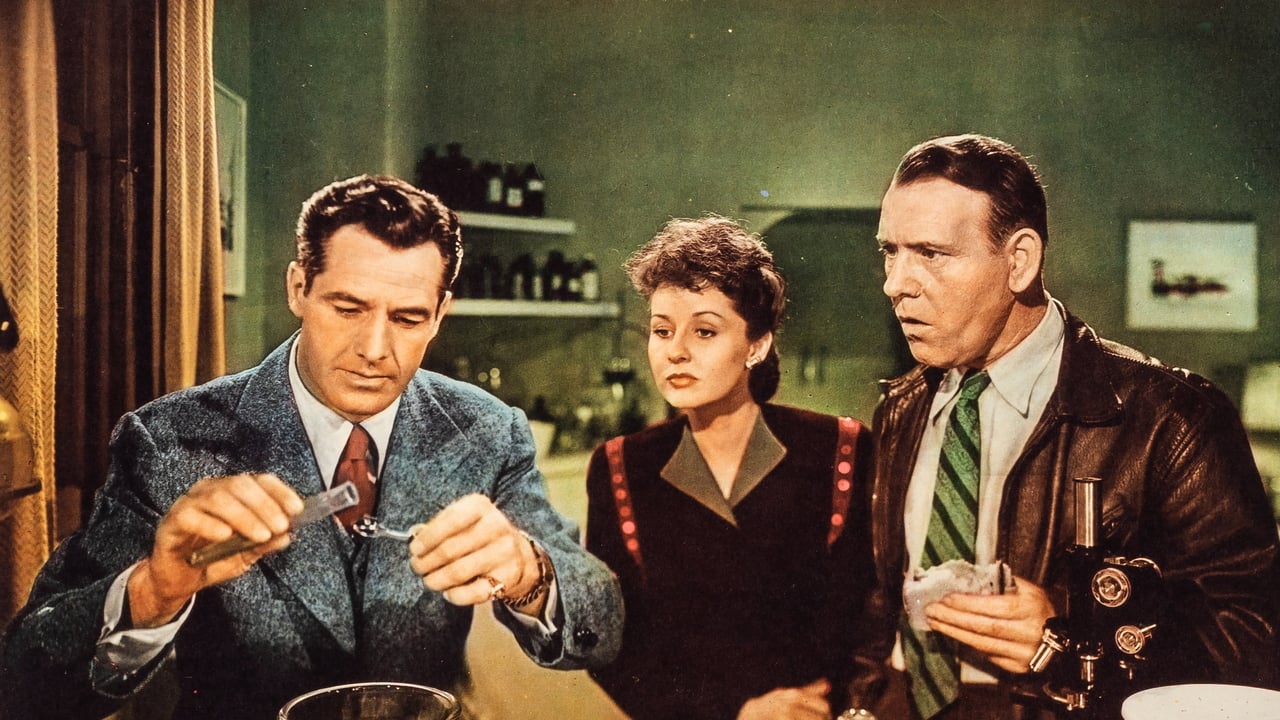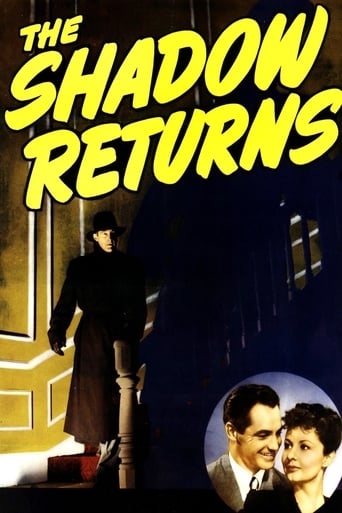Ameriatch
One of the best films i have seen
BoardChiri
Bad Acting and worse Bad Screenplay
Plustown
A lot of perfectly good film show their cards early, establish a unique premise and let the audience explore a topic at a leisurely pace, without much in terms of surprise. this film is not one of those films.
Jenna Walter
The film may be flawed, but its message is not.
busterggi
to make a real Shadow movie this time. Burbank & Hawkeye appear although they don't actually do anything - in fact you'd think they were Lamont's buddies rather than The Shadow's agents from they way they are depicted.Don't get me wrong, its better than 'International Crime' because it does at least feature The Shadow even if he isn't depicted as well as in the earlier serial or the pulps. And it does have more action than 'The Shadow Strikes' (it could hardly have much less). It would be nice if Margot wasn't a pretty much total flake and more of an agent/assistant/non-idiot. Though she comes off looking good next to Cardona & Weston who make the Keystone Kops look and sound good (yes, I know the Kops were silent but that would be an improvement for this film).See it if you can but don't go out of your way.
nova-63
The Monogram series is usually panned and rightfully so, but it is not without some interesting pieces. The change in characterization of Lamont and Margo is somewhat shocking. From the all business approach of the radio serials, we now have the couple engaged to be married and trading wise cracks. This Thin Man/Nick & Nora Charles approach falls somewhat flat as writer George Callahan is no Dashiell Hammett. Shrevvy is a comic character with little intelligence. Burbank operates a detective agency and opens the films giving The Shadow a tip about a possible crime. I would have liked to have seen more of his character as the interpretation is very straight, without comedy, but he has a very minor part in the Monogram series.The mystery elements of the film are pure George Callahan. As in his Charlie Chan screenplays, the actually mystery is not important. Callahan's screenplays contain wacky gadgets and fun settings, but the mystery is an after thought and not played on the square. Here, a businessman has smuggled jewels into the country in a casket. Crooks gather at his estate to buy the jewels. Before a sale can be made the police and The Shadow arrive on the scene. Right before their eyes, the businessman jumps from a balcony to his death. The Shadow knows the man did not jump, but was murdered. Now he sets out to learn how he was murdered and by whom? Of note, the filmmakers decided to show The Shadow as a shadow on the wall. He is never seen in costume, only as the shadow. This works well for me. The largest detriment to the series is the abundance of comedy. Add to that Shrevvy's characterization which is very poor and hurts the film because he is in it so much.
dbborroughs
Second attempt at turning the radio character into a movie series. This time out its Kane Richmond as Lamont Cranston and his alter ego the Shadow. Here he has no power to cloud men's minds, instead he wears a mask and a fedora. Here he is investigating the smuggling of jewels in coffins and the deaths the occur around it.Very comedic the film has almost no suspense despite its best efforts. The broad comedy simply cuts across the mystery and takes away from feeling of danger. The ploy almost works, however about two thirds of the way through the film the mashing of styles becomes too much and the back and forth nature of the plot (There are only really three locations, the commissioner's office, the dead man's house and a warehouse) interest dissipates and you get the feeling you'd really like to just jump to the end to see who the killer is.Worth trying but only on cable.
tedg
Of all the heroes and superheros of the thirties and forties, the shadow is the most intriguing. In his (Orson Welles-created) radio incarnation, he had a strange superpower. He could be invisible and apparently enter and leave any room effortlessly. On the radio, this was a great effect because of course we listeners couldn't see anything at all. So when one of the characters couldn't see another, it was a sort of narrative fold that drew us in.Another device was a sort of demonic laugh, a sort of devilish celebration of justice.How to transport that to cinema? The 1994 version was something of a miracle, one of the best designed movies ever. In that interpretation, the girl was decorous, the bad guy evil and the shadow genuinely invisible as well as having other superpowers.This one is horrible in all ways except for the effort put into the comedy. The mystery isn't, though it has an interesting device, more improbable than most.Ted's Evaluation -- 1 of 3: You can find something better to do with this part of your life.

